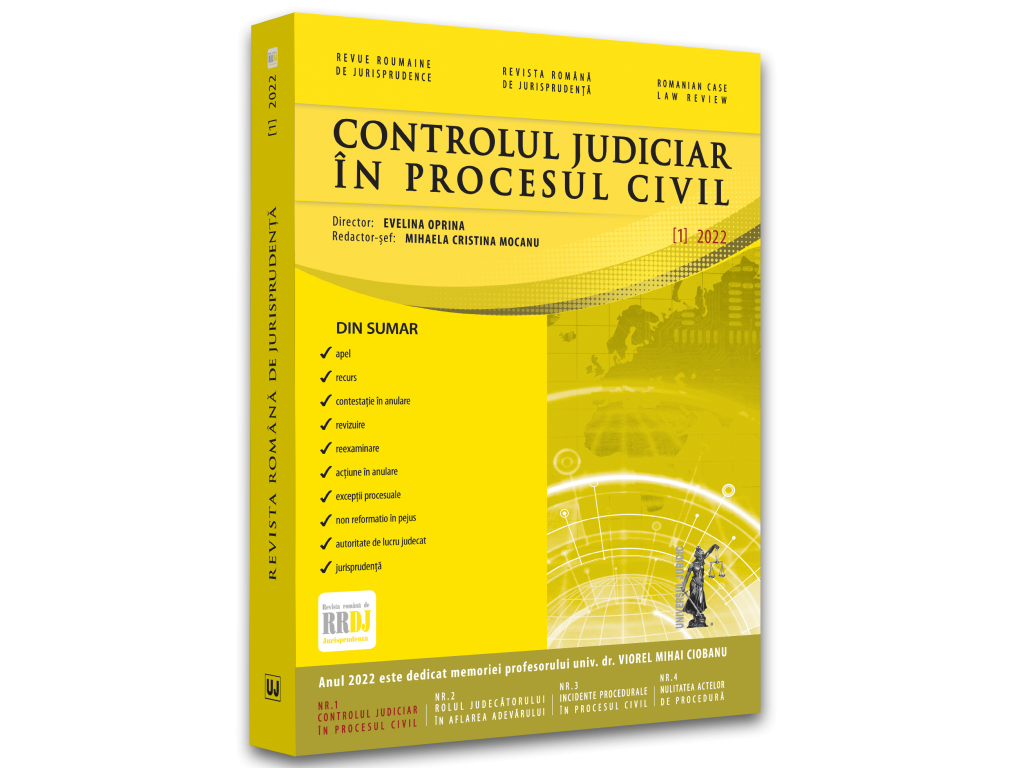Limits of devolution in relation to the issues subject to trial before the first court. Late counterclaim. Agreement of the parties that the late-filed cross-claim should be solved with together with the main claim
JURISPRUDENȚĂ COMENTATĂ ȘI ADNOTATĂ
Abstract
Although, given the nature of the conduct which it prescribes, the legal rule in question is mandatory, the Court considers that, having regard to the nature of the interest protected by its enactment and the purpose of the text, the rule of civil procedural law in question is a private one. This is because the private policy rule seeks to protect an individual interest, while the public policy rule goes beyond the individual interest of the parties and protects a public interest or even the general interest of the society.
As this is a private rule, the parties may expressly or tacitly agree to derogate from it by agreeing that the counterclaim filed late shall be solved with together with the main claim.
However, as explained above, the parties agreed to derogate from the rule laid down in Article 209(4) of the Civil Procedure Code and did not raise, within the procedural time-limit, the plea of lateness, accepting the submission of the incidental submissions and the taking of evidence in respect of the whole case after the time-limit.
The second ground of appeal, which raises the plea of reduction of excessive gifts, will not be considered, since this defence was not raised before the court of first instance and, according to Article 478 of the Civil Procedure Code, devolution operates only with regard to the aspects judged by the court whose judgment is appealed.








